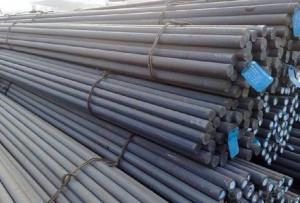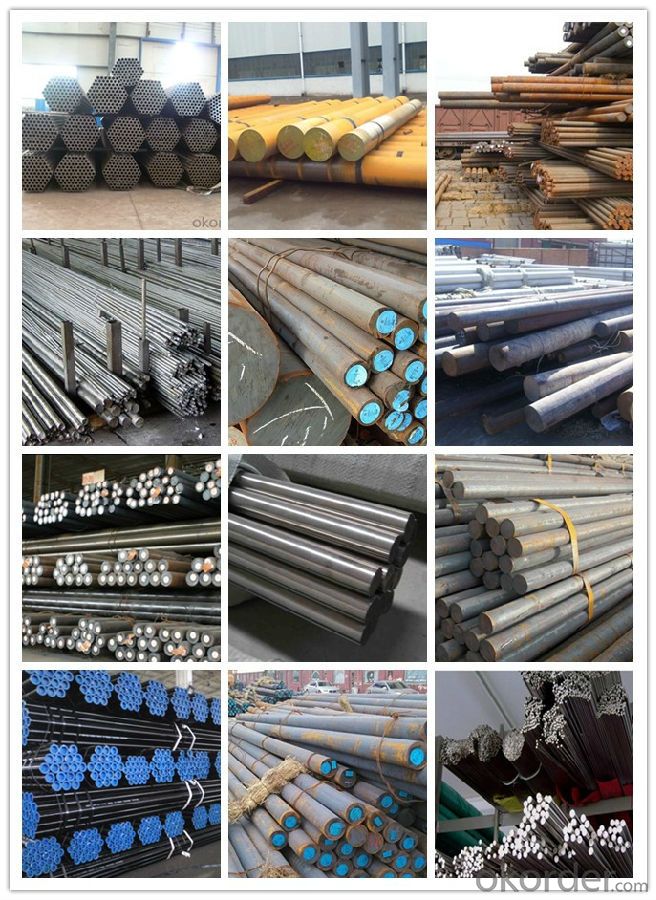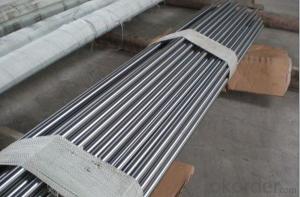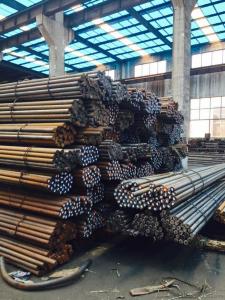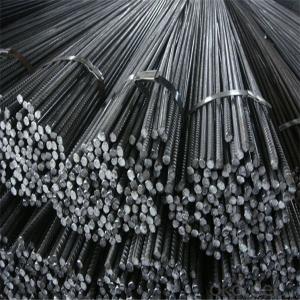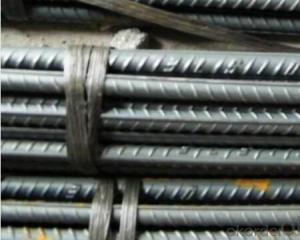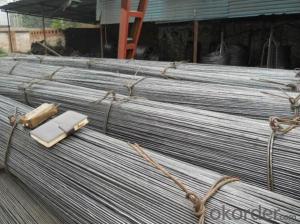Deformed Steel Bar HRB500 Construction Rebar
- Loading Port:
- China main port
- Payment Terms:
- TT OR LC
- Min Order Qty:
- 30 m.t.
- Supply Capability:
- 10000 m.t./month
OKorder Service Pledge
OKorder Financial Service
You Might Also Like
Specification
Product information:
| Commodity: | High quality hot rolled ribbed bar, Steel rebar, Deformed bars, Deform rebar |
| Standard & Grade: | GB1499-98 : HRB335,HRB400,HRB500 |
| BS4449-1997 : GR460B,GRB500B | |
| CAN/CSA-G30.18-M92 : 400W | |
| AS/NZS4671-2001 : GR300E, GR500E | |
| JIS G3112-2010 : SD345,SD390,SD490 | |
| ASTM A615 : Gr.40, Gr.60 | |
| DIN488-1984 : BST500 | |
| KS D 3504 : SD400 | |
| Diameter: | 6mm - 50mm |
| Length: | 6m,9m,12m |
| Packing: | Bundle packing |
| Origin: | China |
| Application: | Construction,Road,Machinery processing,Welding fields. |
| Delivery time: | 10-25 days |
| Shipment: | By bulk vessel or Container |
| Documents: | Mill Test Certificate,Commercial Invoice,Packing List,Certificate of Origin |
Product show
Workshop show
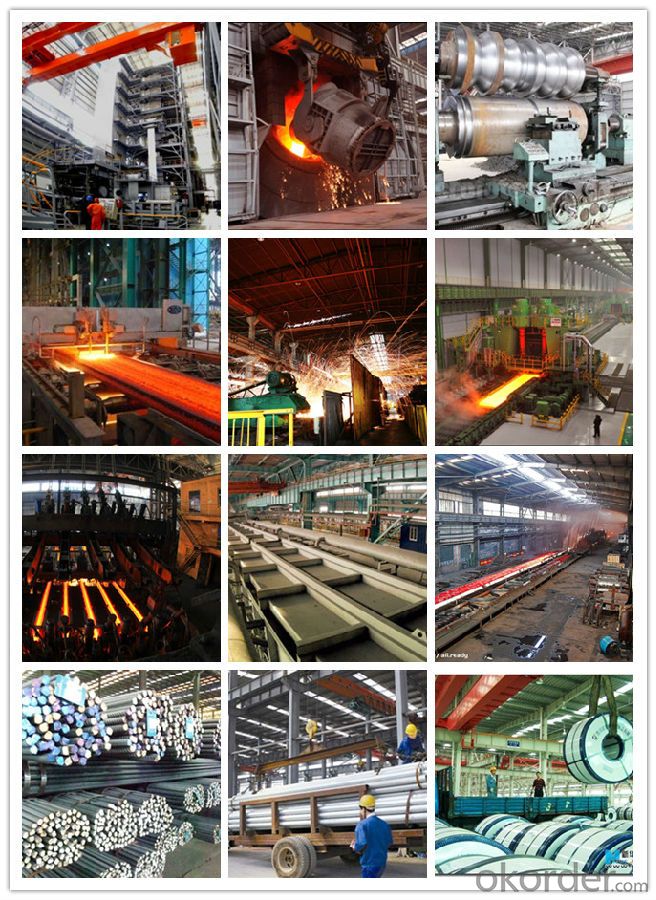
Shipping
1. FedEx/DHL/UPS/TNT for samples, Door-to-Door;
2. By Air or by Sea for batch goods, for FCL; Airport/ Port receiving;
3. Customers specifying freight forwarders or negotiable shipping methods!
Delivery Time: 3-7 days for samples; 5-25 days for batch goods.
Payment Terms
1.Payment: T/T, L/C, Western Union, MoneyGram,PayPal; 30% deposits; 70% balance before delivery.
2.MOQ: 1pcs
3.Warranty : 3 years
4.Package Informations: 1) EXPORT, In 20 feet (GW 25 ton) or 40 feet Container (GW 25 ton)
2)as customer's requirement
Why choose us?
(1) The leading exporter in China special steel industry.
(2) Large stocks for various sizes, fast delivery date.
(3) Good business relationship with China famous factories.
(4) More than 7 years steel exporting experience.
(5) Good after-sales service guarantee.
- Q: What are the non-destructive testing methods used for special steel?
- Some of the non-destructive testing methods used for special steel include ultrasonic testing, magnetic particle testing, liquid penetrant testing, and radiographic testing. These methods allow for the detection of defects, cracks, or other imperfections in the steel without causing any damage to the material itself.
- Q: What are the different types of corrosion-resistant steel?
- There are several types of corrosion-resistant steel, including stainless steel, galvanized steel, weathering steel, and nickel alloys. Each of these types has specific properties that make them resistant to corrosion in various environments and applications.
- Q: How is special steel used in the production of aircraft landing gear?
- Special steel is used in the production of aircraft landing gear due to its high strength, durability, and resistance to fatigue. It helps ensure the landing gear can withstand the stress and impact forces experienced during takeoff, landing, and taxiing. Additionally, special steel alloys are used to create components with precise dimensions and superior corrosion resistance, ensuring the landing gear performs reliably in various environmental conditions.
- Q: What are the different electrical grades of special steel?
- There exist various specialized types of steel that possess exceptional electrical properties. These types include: 1. Silicon Electrical Steel: This particular grade of steel contains a significant silicon content, typically ranging from 3% to 4%. The inclusion of silicon aids in minimizing eddy current losses and enhancing the steel's magnetic properties. Consequently, it becomes an ideal choice for utilization in electrical motors and transformers. 2. Stainless Electrical Steel: This specialized steel grade is crafted from stainless steel alloys, renowned for their remarkable resistance to corrosion. Additionally, stainless electrical steel exhibits low electrical resistivity and high thermal conductivity, making it well-suited for electrical connectors, terminals, and other components that necessitate excellent electrical conductivity and resistance to oxidation. 3. Tool Steel for Electrical Purposes: Tool steels are commonly employed in the production of various tools and dies. Certain tool steels are specifically engineered to possess enhanced electrical properties, including heightened electrical conductivity and resistance to heat. These grades are frequently utilized in the fabrication of electrical contacts, switches, and other electrical components that require exceptional resistance to wear and superior electrical performance. 4. Copper-Clad Steel for Electrical Applications: This specialized steel grade is created by bonding a layer of copper to a steel core. The copper layer offers outstanding electrical conductivity, while the steel core provides durability and strength. Electrical copper-clad steel is commonly employed in applications where high electrical conductivity is imperative, such as power transmission lines and grounding systems. In conclusion, the diverse electrical grades of specialized steel offer a variety of electrical properties to meet the specific requirements of various electrical applications. These grades are meticulously engineered to deliver optimal electrical performance, durability, and resistance to corrosion and wear.
- Q: How is wear-resistant stainless steel used in the production of cutting tools?
- Wear-resistant stainless steel is commonly used in the production of cutting tools due to its high hardness and resistance to wear and corrosion. This steel alloy is essential for making durable and long-lasting cutting tools, such as knives, blades, drills, and saws. The wear resistance of stainless steel ensures that these tools can withstand the friction and abrasion involved in cutting various materials, leading to improved performance and extended tool life.
- Q: What are the different methods of surface carburizing for special steel?
- Some of the different methods of surface carburizing for special steel include pack carburizing, gas carburizing, liquid carburizing, and plasma carburizing.
- Q: What are the different non-destructive testing methods for special steel?
- There are several non-destructive testing methods for special steel, including visual inspection, ultrasonic testing, radiographic testing, magnetic particle testing, and liquid penetrant testing. These methods allow for the detection of surface and subsurface defects, such as cracks, voids, or inclusions, without causing any damage to the material. Each method has its own advantages and limitations, and the choice of testing method depends on the specific requirements and characteristics of the special steel being evaluated.
- Q: What are the specific requirements for special steel used in the railway sector?
- Ensuring the safety, durability, and efficient operation of railway infrastructure in the railway sector relies heavily on meeting the specific requirements for special steel. Some of the key requirements include: 1. Exceptional strength is essential for the special steel used in the railway sector to withstand heavy loads, vibrations, and impacts. This is crucial to maintain the structural integrity of tracks, bridges, and other components. 2. To minimize the need for frequent maintenance and replacement, special steel must have excellent wear resistance as railway tracks and wheels experience significant wear due to continuous contact and friction. 3. Railway components are subjected to constant cyclic loading, which demands high fatigue resistance in the steel. This ensures they can withstand repetitive stress and prevents fatigue failures. 4. Special steel must possess good corrosion resistance to prevent rusting and degradation, thereby ensuring a longer service life in the face of various environmental conditions such as moisture, extreme temperatures, and chemicals. 5. In certain applications like rail joints and fasteners, special steel is exposed to high temperatures due to friction and stresses. Good heat resistance is necessary for the steel to maintain its mechanical properties under such conditions. 6. Good weldability of special steel is essential to enable efficient and reliable joining of components during manufacturing and maintenance processes in the railway sector. 7. The steel must exhibit sufficient ductility and toughness to absorb energy and resist fracture in the event of a collision or impact, ensuring passenger safety. 8. Special steel used in the railway sector must maintain its dimensional stability under varying temperatures and loads to prevent deformation and ensure proper alignment of tracks and components. Meeting these specific requirements for special steel in the railway sector is crucial to ensure the safety, reliability, and longevity of railway infrastructure. This contributes to the smooth operation of the entire transport network.
- Q: What are the specific requirements for special steel used in the defense sector?
- The specific requirements for special steel used in the defense sector are highly demanding due to the critical nature of its applications. These requirements include: 1. Strength and Durability: Special steel used in the defense sector must possess exceptional strength and durability to withstand extreme conditions and resist wear and tear. It should be able to withstand high levels of stress, impact, and pressure. 2. Corrosion Resistance: Defense equipment often operates in harsh environments and is exposed to elements that can cause corrosion. Therefore, special steel used in the defense sector must have excellent corrosion resistance properties to ensure the longevity and reliability of the equipment. 3. Heat Resistance: Defense applications often involve exposure to high temperatures, such as in jet engines or armored vehicle components. Special steel used in these sectors must have the ability to retain its strength and structural integrity even at high temperatures. 4. Machinability and Weldability: Special steel used in the defense sector should have good machinability and weldability characteristics to facilitate the manufacturing and assembly processes. This allows for ease of fabrication, repair, and maintenance of the defense equipment. 5. Hardness and Toughness: Defense applications require special steel to have a combination of hardness and toughness. It should be able to resist penetration and deformation while maintaining the ability to absorb energy and resist fracture. 6. Non-Magnetic Properties: In certain defense applications, such as submarines and magnetic resonance imaging (MRI) equipment, non-magnetic properties are crucial. Special steel used in these sectors must possess low magnetic permeability to avoid interference with sensitive electronic systems. 7. Certification and Compliance: Special steel used in the defense sector must meet specific certification and compliance standards, such as those set by defense organizations or international quality management systems like ISO 9001. These standards ensure the quality, traceability, and reliability of the steel. Meeting these specific requirements for special steel used in the defense sector is vital to ensure the safety, effectiveness, and longevity of defense equipment and systems. Stringent testing and quality control processes are implemented to guarantee that the steel meets the required specifications and standards.
- Q: What are the requirements for special steel used in wind turbines?
- The requirements for special steel used in wind turbines typically include high strength and durability, resistance to corrosion and fatigue, excellent weldability, and good magnetic properties. Additionally, the steel should possess good formability and machinability to aid in the manufacturing process of turbine components.
Send your message to us
Deformed Steel Bar HRB500 Construction Rebar
- Loading Port:
- China main port
- Payment Terms:
- TT OR LC
- Min Order Qty:
- 30 m.t.
- Supply Capability:
- 10000 m.t./month
OKorder Service Pledge
OKorder Financial Service
Similar products
Hot products
Hot Searches
Related keywords
